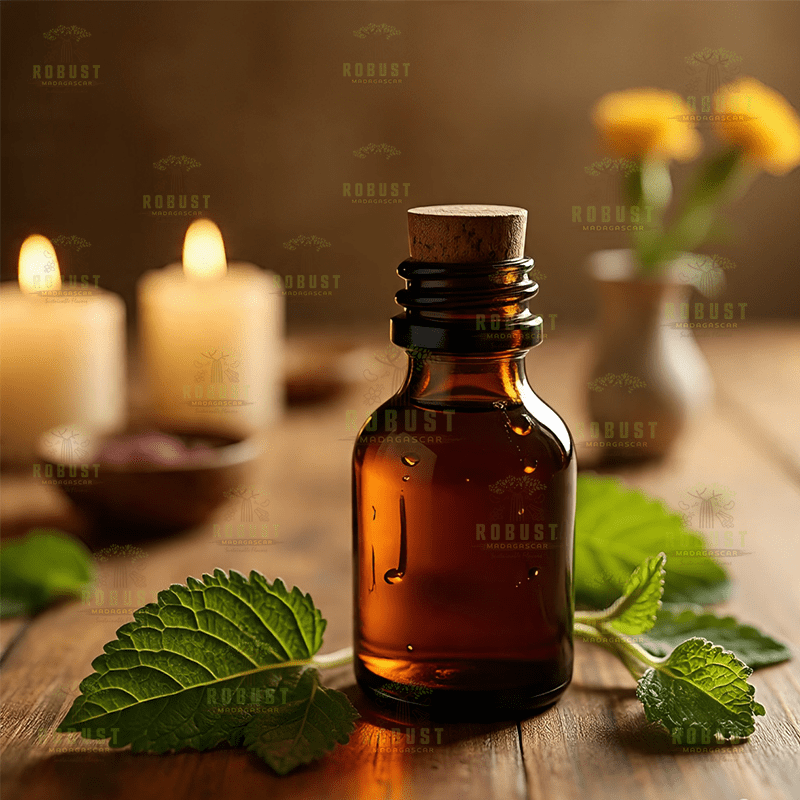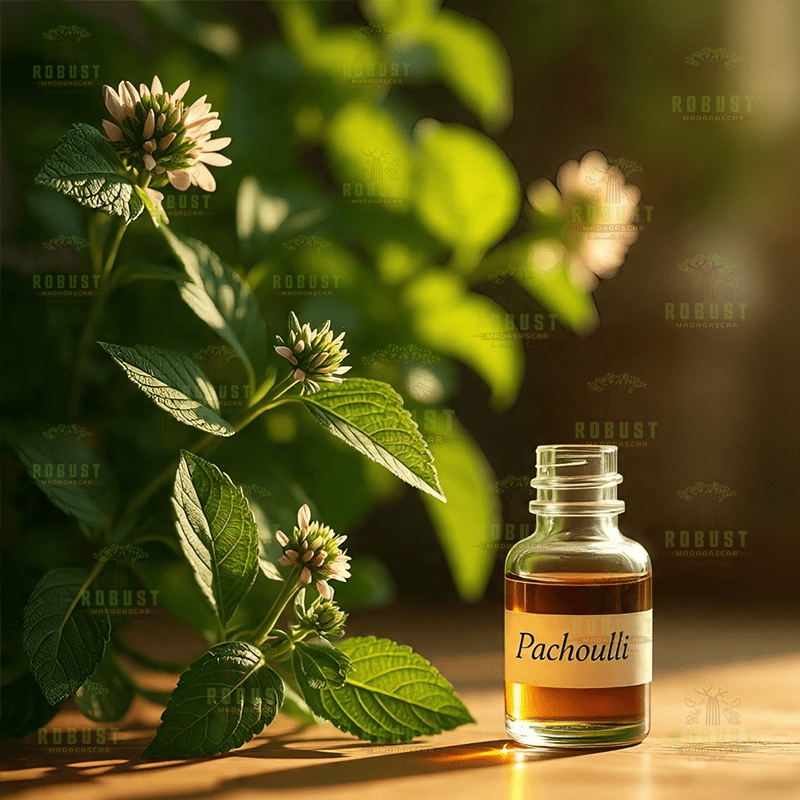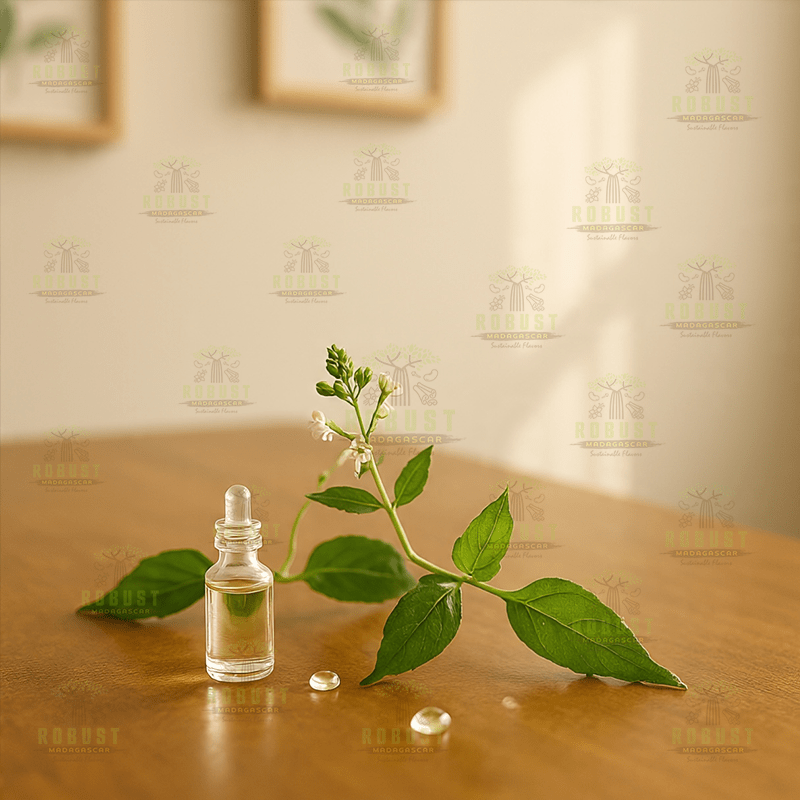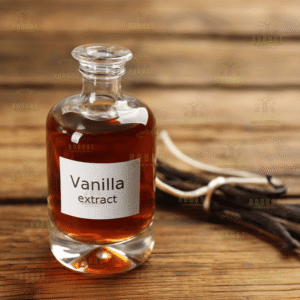Description
DESCRIPTION OF PATCHOULI OIL
Patchouli oil is a natural essential oil obtained by steam distillation of the leaves of the tropical shrub Pogostemon cablin, which is a member of the mint family. It has a minimum density of 0.952 g/mL at 20 °C (as per ISO 3673). The main ingredients present in patchouli oil are Patchoulol, which gives the oil its long-lasting aroma and fixative properties in perfumery, and α-Bulnesene (around 15%), which contributes to the oil’s deep woody and balsamic aroma. Patchouli oil from Madagascar generally contains a higher Patchoulol content, typically more than 36%, compared to Indonesia, where it is usually 30–32%.
As a trusted Madagascar Patchouli Oil Supplier, we focus on delivering reliable quality for global buyers
SOURCES OF PATCHOULI OIL SUPPLIER
Patchouli oil originally comes from Southeast Asia, where it naturally grows in countries like Indonesia, the Philippines, and Malaysia. These regions are considered the native homes of the patchouli plant. Due to increasing demand from the fragrance, cosmetic, and aromatherapy industries, the cultivation of patchouli has expanded over time to various tropical regions around the world. Some of the important patchouli oil supplier and producing countries are as follows:
Major Producing Countries
- Indonesia is the world’s largest producer and exporter of patchouli oil. The key cultivation areas are Sulawesi, Sumatra, and Java.
- India holds roughly 5-7% of the global production of patchouli oil. The major producing states there are Karnataka, Tamil Nadu, and Kerala.
- Madagascar contributes approximately 2–3% to global patchouli oil production, with output steadily increasing. Madagascar patchouli oil is known for its exceptional quality and unique chemical composition, giving it a rich, refined aroma
- China makes up roughly 1-2% of the global production of patchouli but is reportedly increasing its output streams.
HEALTH BENEFITS OF MADAGASCAR PATCHOULI OIL
- Anti-inflammatory : Patchouli oil is high in compounds that have an anti-inflammatory effect and can calm irritated skin conditions.
- Antioxidant effects : Patchouli oil is also high in antioxidants that protect the skin and body cells against free radicals, which contribute to cell damage, promoting healthy skin.
- Skin healing and regenerative properties : Patchouli oil may promote skin regeneration and wound healing. it can help reduce the appearance of scars, stretch marks, and other minor skin imperfections.
- Antifungal and antibacterial activity :Patchouli oil is naturally antifungal and antibacterial, making it helpful in fighting infections, dandruff, and other minor skin infections and preventing microbial growth.
- Aromatherapy for Stress : Patchouli oil has anti-depressant and stress-reducing properties when used in aromatherapy since it increases the production of serotonin and dopamine, which are mood-boosting chemicals.
CHEMICAL COMPOSITION OF MADAGASCAR PATCHOULI OIL
Madagascar Patchouli oil is a complex mixture of various plant-based natural compounds, primarily those with aromatic and therapeutic qualities. These compounds are responsible for the oil’s distinctive earthy, woody aroma and its beneficial properties for health and wellness.Here’s a breakdown of the key components:
Major Components:
- Patchoulol: This is the dominant component, present at more than 36% in the analyzed sample. Patchoulol is an oxygenated plant-based natural compound that gives patchouli oil its signature scent and contributes to many of its therapeutic benefits.
- α-Bulnesene: Present at around 15%, this plant-based natural compound adds a deep woody aroma and enhances the richness of the fragrance.
- α-Guaiene: Present at around 14%, this plant-based natural compound brings earthy and spicy hints to the overall aroma of the oil.
Other Significant Components:
- Pogostol: Present at around 2%, another oxygenated plant-based natural compound that adds complexity.
- Eugenol: Present at around 0.01%, known for its warm and spicy scent and antioxidant activity.









Reviews
There are no reviews yet.